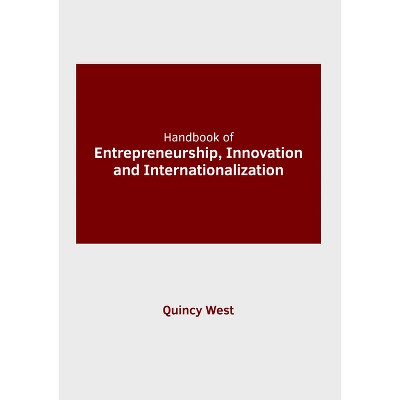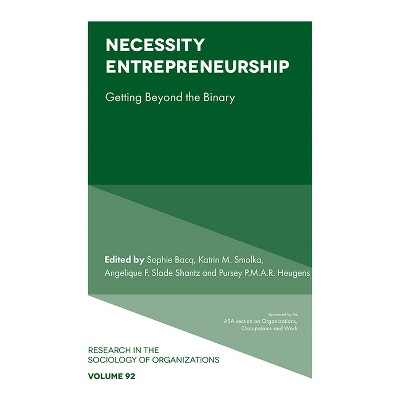Sponsored

Neurodiversity in Entrepreneurship - (Advances in Entrepreneurship, Firm Emergence and Growth) (Hardcover)
In Stock
Sponsored
About this item
Highlights
- Anecdotal evidence suggests that entrepreneurship is a context in which individuals who see and/or experience the world differently can drive innovation and invention in ways that create wealth and enhance the public good.
- About the Author: Louis D. Marino is a Professor of Entrepreneurship and the Director of the Leven School of Management, Entrepreneurship and Hospitality at Kennesaw State University, USA.
- 192 Pages
- Business + Money Management, Entrepreneurship
- Series Name: Advances in Entrepreneurship, Firm Emergence and Growth
Description
About the Book
The seven chapters in this volume advance our understanding of neurodiversity in entrepreneurship by offering theoretical frameworks, empirical evidence, and interdisciplinary insights.
Book Synopsis
Anecdotal evidence suggests that entrepreneurship is a context in which individuals who see and/or experience the world differently can drive innovation and invention in ways that create wealth and enhance the public good.
The chapters in this volume leverage comprehensive theoretical frameworks, empirical evidence, and interdisciplinary methodologies to advance our understanding of neurodiversity in entrepreneurship. The chapters employ diverse approaches and collectively establish how neurodivergent individuals create value within entrepreneurial contexts, moving beyond deficit-based conceptualizations and demonstrating how to harness cognitive differences as entrepreneurial strengths, while thoughtfully addressing associated challenges.
The collection of prominent researchers in this volume focuses on diverse topics at the intersection of neurodiversity and entrepreneurship, but three primary theses emerge from their collected works. First, neurodivergent traits can enhance performance in the entrepreneurial context despite the unique challenges presented by various types of neurodiversity. Second, the neurodiversity of individual team members can improve collective performance beyond that of neurotypical teams through intentional team design and appropriate support structures. Finally, the integration of interdisciplinary methodologies, such as neuroscience, social identity theory, and entrepreneurship research, can enable us to examine unexplored intersections and better understand the implications of the neurobiological underpinnings of entrepreneurs' cognitions, as well as the intersection of topics like gender and neurodiversity in the entrepreneurial context. Taken together, these theses argue for positioning neurodiversity as not a side issue, but as one that is central to understanding modern entrepreneurship.
Advances in Entrepreneurship, Firm Emergence and Growth (AEFEG) provides an annual examination of the major current research theoretical and methodological efforts in the field of entrepreneurship and its related disciplines of small business family business and population ecology as well as firm growth and emergence research.
About the Author
Louis D. Marino is a Professor of Entrepreneurship and the Director of the Leven School of Management, Entrepreneurship and Hospitality at Kennesaw State University, USA.
Andrew C. Corbett is the Paul T. Babson Distinguished Professor of Entrepreneurial Studies and Faculty Director for the Butler Institute for Free Enterprise through Entrepreneurship at Babson College, USA.
Daniel A. Lerner is currently an Associate Professor in Entrepreneurship at IE University, Madrid, Spain.
Shipping details
Return details
Trending Non-Fiction

















